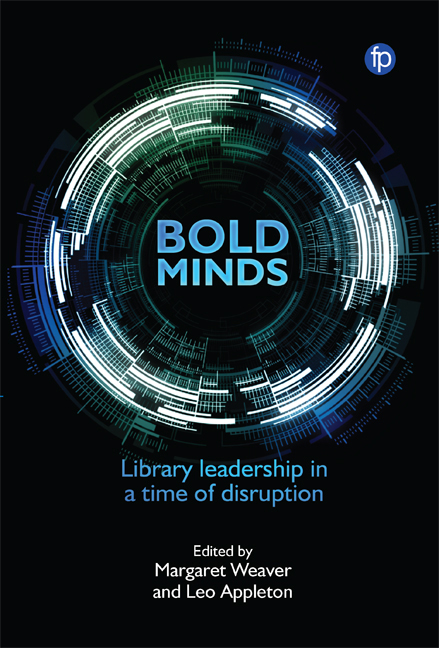Book contents
- Frontmatter
- Contents
- Foreword
- Contributors
- Preface
- Introduction
- Section 1 Views From the Corridors of Power: The Political and Global Perspective
- Section 2 The Re-Birth of Libraries – New Business Models and Re-Generation of Services
- Section 3 Who Really Matters? User Communities and Alignment
- Section 4 The Future Library Professional – Horizons and Challenges
- Index
5 - The 21st-Century People’s Library
Published online by Cambridge University Press: 15 December 2020
- Frontmatter
- Contents
- Foreword
- Contributors
- Preface
- Introduction
- Section 1 Views From the Corridors of Power: The Political and Global Perspective
- Section 2 The Re-Birth of Libraries – New Business Models and Re-Generation of Services
- Section 3 Who Really Matters? User Communities and Alignment
- Section 4 The Future Library Professional – Horizons and Challenges
- Index
Summary
Introduction
Even as society undergoes continuous change, the public library continues to be considered by some as a much-loved and respected institution – even those who have never used it can still see its wider democratic and civic value. The public library is still widely and globally recognised as a public institution, a catalyst for change, facilitating social, economic and cultural development and supporting communities to take advantage of the opportunities afforded them by a modern society.
At its best, the public library is a hybrid space – digital, physical and social – a place that people trust as they know that we understand privacy and equality. In many places it is also a smart centre, putting the digital economy within everyone's reach. A one-stop destination to test drive the latest technology, equalising access and skills around the new technologies, from coding and circuit making to artificial intelligence and virtual reality. At its best, it is part of a national network of learning and literacies – an experiential, entrepreneurial and experimental space.
As a profession, we know we need skilled workers in order to be a leader in the global knowledge economy (CILIP and Society for Chief Librarians, 2017). The public library is that place where if you can't afford an expensive education, college or university, you will still be included in the digital world due to public libraries’ social inclusion plans. It is also where you can get help, support or join a group on autism, dyslexia, literacies or cancer care. Get the kids to a story time, rhyme time or summer holiday activities, join a teen group, hear an author, work in a homework club, makerspace, coding club or try out a 3D printer. If you need a workspace, desk printer, business information or free Wi-Fi, your public library probably has all this and more, not to mention the books, fabulous genealogy, local history and special collections!
The value of the public library service to people and communities is reflected in a recent survey of library services in Ireland and the UK, Shining a Light, commissioned by the Carnegie UK Trust in 2017.
- Type
- Chapter
- Information
- Bold MindsLibrary Leadership in a Time of Disruption, pp. 81 - 100Publisher: FacetPrint publication year: 2020



